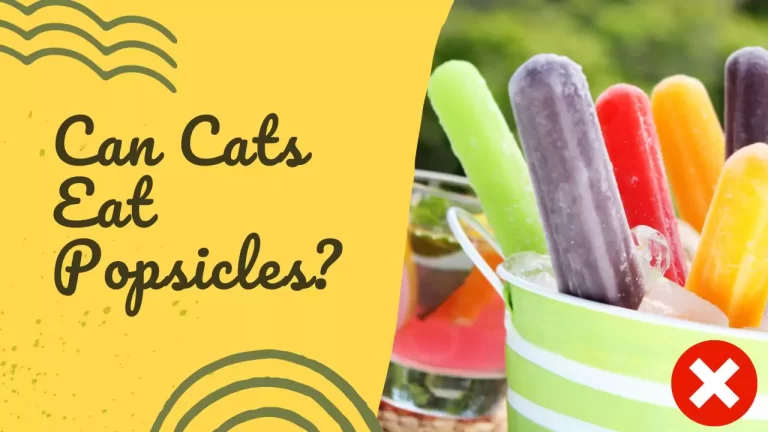No, cats should not eat popsicles. Popsicles contain high amounts of sugar and artificial sweeteners that can be harmful to cats.
Additionally, the cold temperature and texture of popsicles carry risks of digestive upset and brain freeze for cats.
While popsicles may seem like a tasty treat, there are better alternatives for providing frozen snacks to cats.
The Dangers of Popsicles for Cats
There are a few reasons why popsicles are not safe treats for cats:
High sugar content
Popsicles often contain high amounts of processed sugars like high fructose corn syrup or sucrose. Too much sugar is unhealthy for cats, just as it is for humans. Eating sugary popsicles frequently could cause obesity, diabetes, and dental issues in cats.
Artificial sweeteners
Some sugar-free popsicles are sweetened with artificial sweeteners like xylitol or sorbitol. These sweeteners are extremely toxic to cats and can cause dangerous drops in blood sugar or even liver failure. Always check ingredients before giving any human foods to cats.
Potential digestive issues
The cold temperature, freeze-thaw cycle, and texture of popsicles could irritate a cat’s digestive tract. Eating popsicles rapidly may give some cats diarrhea, vomiting, or stomach upset.
Alternatives to Popsicles for Cats
Instead of giving popsicles, cat owners can try these healthy homemade alternatives:
Homemade frozen cat treats
Make frozen treats for cats at home by pureeing canned cat food or tuna with water into an ice cube tray. The frozen cubes provide a safe, meaty snack cats will love.
Cat-friendly popsicle alternatives
Some companies make cat treats that have a popsicle-like shape and texture but are formulated to be safe and healthy for cats. Look for freeze-dried raw or single-ingredient meat options.
Can Cats Get Brain Freeze from Popsicles?
Brain freeze is caused by rapidly consuming cold foods which constricts blood vessels in the mouth and face. So in theory, cats could get brain freeze from popsicles:
How cats may experience brain freeze
If a cat ate a popsicle too quickly, they may briefly react by shaking their head, stopping eating, meowing, or pawing at their face. The discomfort should pass within a minute.
Precautions to take
Do not purposefully feed popsicles to cats to test for brain freeze. The other health risks are too great. But if a cat did get an accidental lick of a popsicle, just monitor them for signs of head pain. Discontinue popsicle access immediately.
Conclusion
Popsicles are enticing frozen treats, but they really should be reserved for human consumption only. Cats have different nutritional needs and cannot safely process some of the ingredients in store-bought pops. Luckily, cat owners have many options for providing a cold snack that will satisfy a cat’s cravings without jeopardizing their health. With some easy homemade recipes or cat-specific products, owners can give their felines a frozen treat they’ll love just as much as a popsicle!







